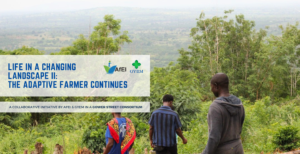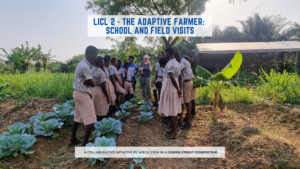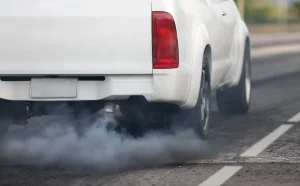World Environment Day Statement by the Ghana Youth Environmental Movement (GYEM) June 5, 2025
World Environment Day is being observed this year under the theme “Ending Global Plastic Pollution”. It is an urgent reminder of the devastating impact of plastics and the need to eliminate plastic waste from our planet. At GYEM, this theme resonates deeply with us; it is an urgent call to action. For many years, plastic pollution has been a looming threat and has now reached a full-blown crisis. Plastics have invaded our oceans, choked our rivers, polluted our air, and endangered our health. Single-use plastics have become an emblem of this plastic crisis. On this World Environment Day, we reaffirm our commitment to end plastic pollution in Ghana.
For over 4 years, GYEM has led a consistent campaign calling for a national ban on single-use plastics. Our advocacy has been grounded in community mobilisation, youth leadership, and data-driven activism. We have organised 2 major public sensitisation events at the Kaneshie market and the Accra-Tema station. We have reached more than 4,000 people directly through dialogues, clean-ups, and plastic-free awareness programmes. We have also equipped hundreds of young people to become anti-plastic ambassadors in their communities. In addition to grassroots mobilisation, GYEM has commissioned one study on Ghana’s plastic waste and produced 2 documentaries showcasing sustainable alternatives. We have had several beach cleanups and mounted an artwork to remind beachgoers and tourists of the harmful impacts of plastics. These outputs have already influenced public conversations on plastic pollution to an extent.
Ghana generates approximately 1.7 million tonnes of plastic waste each year. An overwhelming majority of these end up in our drains, gutters, beaches, and open spaces. These have dire consequences. During the rainy season, clogged drains caused by plastic waste lead to devastating floods. This was evident not long ago in many parts of Accra. Marine species are dying from ingesting microplastics. Fishermen are harvesting plastics instead of fishes. Plastics are burnt in the open, exposing communities to toxic fumes and increasing respiratory illnesses. The once lush green landscapes of Accra and other major cities in this country have been replaced with plastic sachets, styrofoam, and disposable plastics. This is not just an environmental issue; it is a public health and economic challenge that demands urgent national action.
As young people, we cannot allow this to go on with impunity. That is why GYEM is embarking on the next phase of our campaign. We are advocating for a national roadmap to ban single-use plastics in Ghana by 2027. This roadmap is built on 5 demands.
- First, we propose a phased ban, starting with plastic bags, straws, stirrers, styrofoam (takeaway containers), food wrappers, plastic cutlery, cotton buds, coffee cups and beverage bottles.
- Secondly, we advocate for incentives for businesses involved in the production of sustainable alternatives to enable them to scale up their productions.
- Third, we call for capacity-building and resourcing of local authorities to enforce plastic bans and improve waste segregation.
- Fourth, we demand the inclusion of young people and community voices in decision-making processes.
- Finally, we are developing a public accountability mechanism to track government and corporate commitments toward plastic reduction.
As we mark this year’s World Environment Day, we call for a collective action against single-use plastics. We call on policymakers, especially MESTI, EPA, and Parliament, to treat plastic pollution as a national emergency. We commend the EPA for its recent commitment to ban single-use plastics in designated areas and were pleased to reaffirm our support for this position during a recent visit to the EPA Chief Executive. However, we hope that this stance will be backed with action and the necessary legislation to arrive at an outcome consistent with what GYEM seeks, a ban on single use plastics. We urge them to fast-track the legislative processes required to ban harmful single-use plastics. GYEM is ready to mobilise grassroots support to make this legislation practical, inclusive, and enforceable.
We call on the media to highlight the deeper story of plastic pollution in Ghana. Public education campaigns and consistent media pressure can help shift national behaviour and hold decision-makers accountable. We urge media houses to spotlight not just the problems but also the solutions, particularly innovations by young Ghanaians in the circular economy. We call on our partners in civil society and development organisations to join us in forming a Civil Society Coalition on Plastic Pollution. This coalition will strengthen our advocacy power, create alignment across initiatives, and ensure that our collective efforts are more strategic and impactful. We must build a unified voice to ensure plastic pollution remains high on Ghana’s development agenda.
This World Environment Day must mark a new chapter. Ghana’s young people are standing up. Communities are ready for change. Alternatives exist. What we need now is political courage and coordinated national leadership to bring about the systemic change we seek. From plastic action to plastic legislation, the time has come to move from action to policy. Let us rise to the challenge and make history by making Ghana the next African country to boldly ban single-use plastics.




